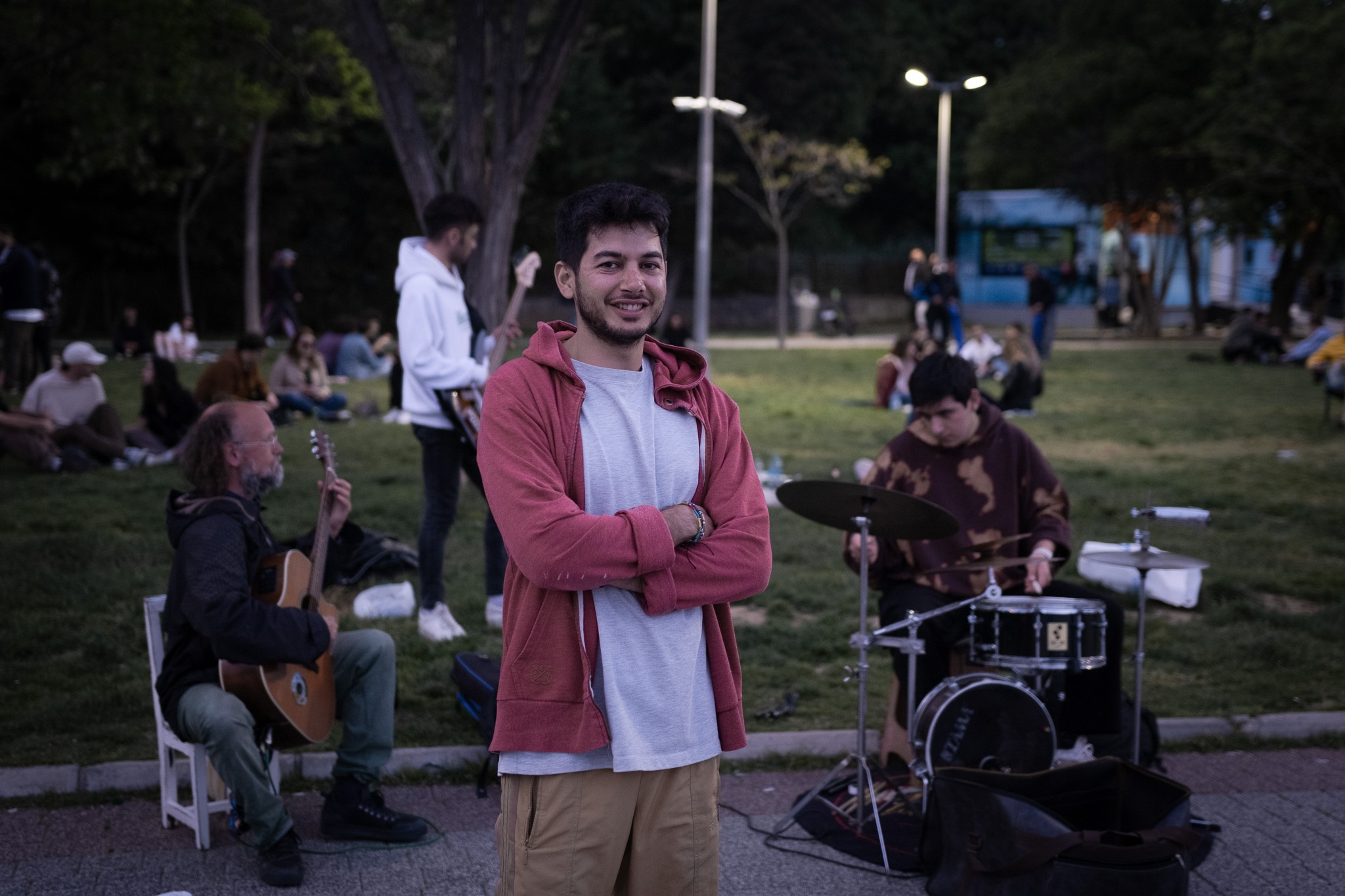Erdoğan’s reelection is making young Turks depressed
Erdogan's reelection is having a significant impact on the mental health of young Turks, who largely supported left-leaning Kılıçdaroğlu for a political shift amidst an economic crisis and an ever-more authoritarian state.
Before last May’s election, an ambience of change could be felt in Beşiktaş, one of the most popular neighbourhoods amongst the youth in Istanbul. Streets were packed with young Turks demonstrating in favour of Kılıçdaroğlu, the opposition’s main leader. Many youngsters, who largely align with liberal parties, saw this election as the only real opportunity in decades to elect someone different who could terminate Erdoğan’s 20-year rule and fix many of the woes the country is currently facing.
However, the results of May’s election came as a shock to everyone - Erdoğan will be in power for another five years. ‘’I feel depressed about Erdoğan. I don’t have any hope. I don’t have faith in change any more. I want to leave Turkey’’ says Kubra, a 23-year-old engineering student while apathetically taking a puff of a cigarette.
This disillusion with Turkey started in 2016 when the country took a sharp authoritarian turn after the controversial referendum that de facto erased the separation of powers, and allowed Erdogan to fully project his vision of Turkey. Since then, the loss of civil liberties has plunged the country into a downward spiral of negativity.
‘’Erdoğan does not protect women, LGBT rights, education, the economy, and there is no [fair] justice. Erdoğan is spreading hate. I do not feel comfortable’’, Peri, a first-year university student, says.
Alongside this undermining of civil rights, the economy started crumbling after 2018. Erdoğan’s unorthodox economic policies have caused the Turkish lira to lose over 80 per cent of its value against the US dollar. This, combined with a heavy reliance on imports, has skyrocketed inflation to over 70 per cent in 2022 alone.
Peri is struggling financially and mentally since she can barely afford to study at university. ‘’My grades are so bad because I have to work full-time and I don’t have time to go to class. Basic things have become a luxury. We can’t even afford olive oil’’.
According to the World Health Organization, antidepressant consumption in Turkey has gone up by 57 per cent in the last five years. Gallup, a Washington D.C.-based think-tank, consistently ranks Turkey in the top three countries with the least positive experiences, only behind Afghanistan and Lebanon.
Future prospects have never been this grim, when Ebru, a 52-year-old cafe owner, graduated from university in 2000, she was part of a very different Turkey. The economy was thriving, life expectancy was on the rise, and the country was on a pathway to joining the European Union.
‘’It was easy to find a job, we had much better opportunities. Now, everything is too expensive. I am sure young people are less happy than we were, that is why they all want to leave’’ Ebru says.

Mert, a 28-year-old musician from earthquake-hit Antakya, is touring around the country playing music in parks and different venues to improve his mental health while he waits for his Spanish visa to be processed. ‘’My mental health is bad, I can’t sleep well’’. He has recently been diagnosed with a thyroid condition due to all the stress he has been subjected to in the last few months.
‘’I always try to be happy but [I feel] negative about the government and the earthquakes. Every artist doesn’t like Erdoğan. He is very conservative [and] wants to make Turkey [even] more conservative. He has been in power for over 20 years, I don’t remember life without Erdogan’’ says Mert.
Onur, a psychologist with over five years of experience has seen how the mental health of youngsters has deteriorated in recent times. ‘’Now, everyone has a level of depression. People are anxious about how to pay rent, and how to afford food if they lose their jobs. I am [even] working more than before because I am anxious about my future too. [...] The economic crisis is making people lonelier because they socialize less. Coffee is so expensive now’’.
The effects of this mental health crisis are having clear impacts on Turkish society as a whole. ‘’People are angry. [Hence], they have started to smoke more cigarettes, hate crimes have increased against Syrians, and people drive less carefully’’.
Moreover, Onur thinks that the May election has created a lot of polarization in society, “politicians have become pop stars, they are followed religiously. We have an ‘us and them’ scenario [and] you have to choose one side. Even in working spaces, people don’t like each other depending on who they are voting for. There is a lot of distrust in Turkish society. Young people have become more selfish because they have to look after themselves’’.
Amongst young Turks, there is a sense of defeat, a sense that they have missed the best opportunity they have had in many years for a different Turkey. ‘’We are trying to accept this situation and be happy. We have to move on, but we can’t, everything is so negative’’, Peri concludes.